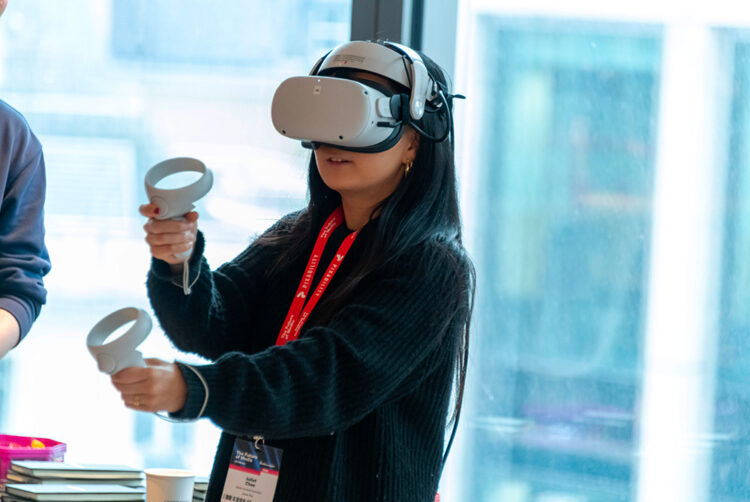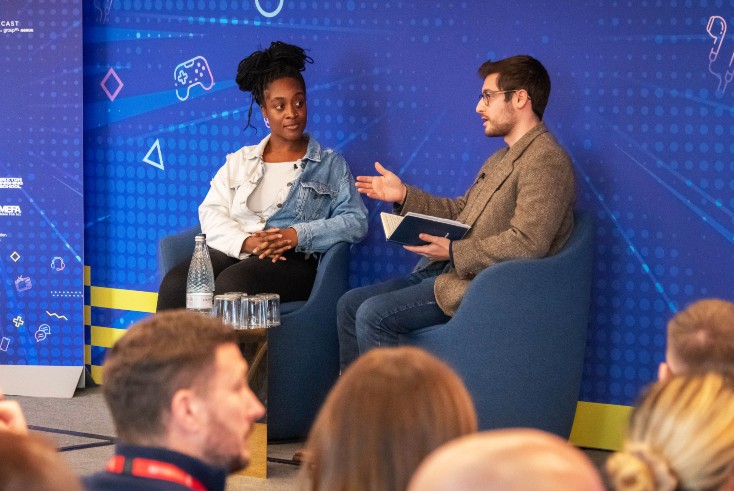Gaming experts split on whether the ‘metaverse’ is dead

The Future of Gaming
At The Future of Gaming conference this month, the metaverse was variously declared “dead in the water”, while others insisted it was “insane” to dismiss the term as nothing more than hype.
“I think it’s dead in the water, it’s pretty safe to say.”
The term ‘metaverse’ was used throughout this month’s The Future of Gaming conference as something of a pejorative. Delegates referred to it to represent media’s gullibility in chasing after whatever new shiny toy is popular at the moment.
To kick off this year’s event, gaming journalist Shay Thompson told The Media Leader that the metaverse was “never a thing for me to begin with,” and suggested the venture’s hype was not driven by demand from gamers, but from suppliers hoping to have developed the next big thing.
“It’s really frustrating because you had stuff like Second Life [already] existing. That was ‘the metaverse.’ So it being presented as a brand-new, revolutionary thing was surprising to me,” said Thompson. “Any application of it never felt like something I should invest my time in.”

Gaming journalist Shay Thompson with The Media Leader‘s Jack Benjamin at The Future of Gaming.
She admitted games like Fortnite and Roblox, which today are often referred to by media professionals as “the metaverse,” though they are considered by consumers to simply be standard games with large communities, have existed in other forms for years. “This need to put them into these little boxes felt condescending,” Thompson said.
She added that VR headsets cause her to feel sick after just half an hour of use, and that the technology will fail to take off until it fixes the user experience to avoid feelings of nausea and dizziness.
‘The numbers speak for themselves’
Later at the conference, a panel of gaming experts were divided over whether Thompson’s opinion on the metaverse’s demise was accurate.
“I think it’s an insane statement to say the metaverse is dead,” rebutted Laura Ballesteros, the head of agency sales strategy at gaming adtech company Venatus. She offered that “gaming metaverse platforms” like Roblox and Fortnite are massively popular and lucrative, with in-game cosmetic item purchases reportedly totalling $5.8bn in revenue for Epic Games in 2021, more than the likes of Ralph Lauren or Prada making real clothes.
“This offers huge opportunities for brands. Anyone saying the metaverse is dead, I think it’s quite the opposite. The numbers speak for themselves.”
Cecilia Dones, an adjunct assistant professor at Columbia Business School who studies marketing opportunities in new technologies, also expressed optimism in the metaverse, but cautioned that there is a conflation between the distinct Web 3.0 experience that the likes of Mark Zuckerberg is trying to popularise through his Quest virtual reality headset and the “more ubiquitous” Web 2.0 experience with Roblox and Fortnite.
She advised that, though the former is “the next fringe area” of technological development, brands should be testing and learning within the more mature environment of Web 2.0 games so they are prepared when augmented reality becomes more pervasive among consumers.
‘We’ve got an issue with the M word’
Phil Rowley, Omnicom Media Group’s head of futures and The Media Leader columnist, agreed that the metaverse is poorly defined between Zuckerberg’s Web 3.0 vision and the reality of more popular Web 2.0 gaming experiences today.
“I think we’ve got an issue with the M word. We either need to rename it or reframe it,” he said. “It’s like getting the leaf confused with the branch, the branch confused with the tree, and the tree confused with the forest.”
He argued that decades of science fiction titles like Tron, The Matrix, The Lawnmower Man and Ready Player One have given current tech developers and marketers an unrealistic vision of the current capacity for the metaverse. “We assumed that that’s the way things are going, but the reality is that particular iteration hasn’t perhaps been as successful as people would have hoped. […] It’s a bit like 3D cinema: everyone thinks ‘It’s back, it’s here now,’ and then it just goes away because for whatever reason it doesn’t work.”
He added there’s a “bit of a danger” for marketers confusing the metaverse with gaming more broadly, and getting too gun-shy about the gaming proposition when they hear from the likes of Thompson that the metaverse is dead. He warned that if marketers “throw the baby out with the bathwater,” they would be missing the 3 billion people globally that are gaming merely “on the basis that Zuckerberg’s venture in particular was a difficult thing to deliver.”
The other media agency representative on the panel, head of Wavemaker Play Amy Meikle, agreed with Rowley, and went further by implying the negative association of the term “the metaverse” has already harmed gaming investment.
Not only has the definition of the metaverse proved too elusive for marketers (“Google uses it one way, Meta uses it one way, Epic Games uses it another way; it’s too broad.”), but the thus far seldom-discussed downsides of the metaverse, namely how unsafe an environment it may be for brands and users, have detracted from gaming budgets on the whole. Meikle cited the Channel 4 documentary Inside the Metaverse Are You Safe?, which she said “put off a lot of brands” on gaming altogether.
For Meikle, regardless of if the metaverse is dead, for now she “would like to bury that word.”



